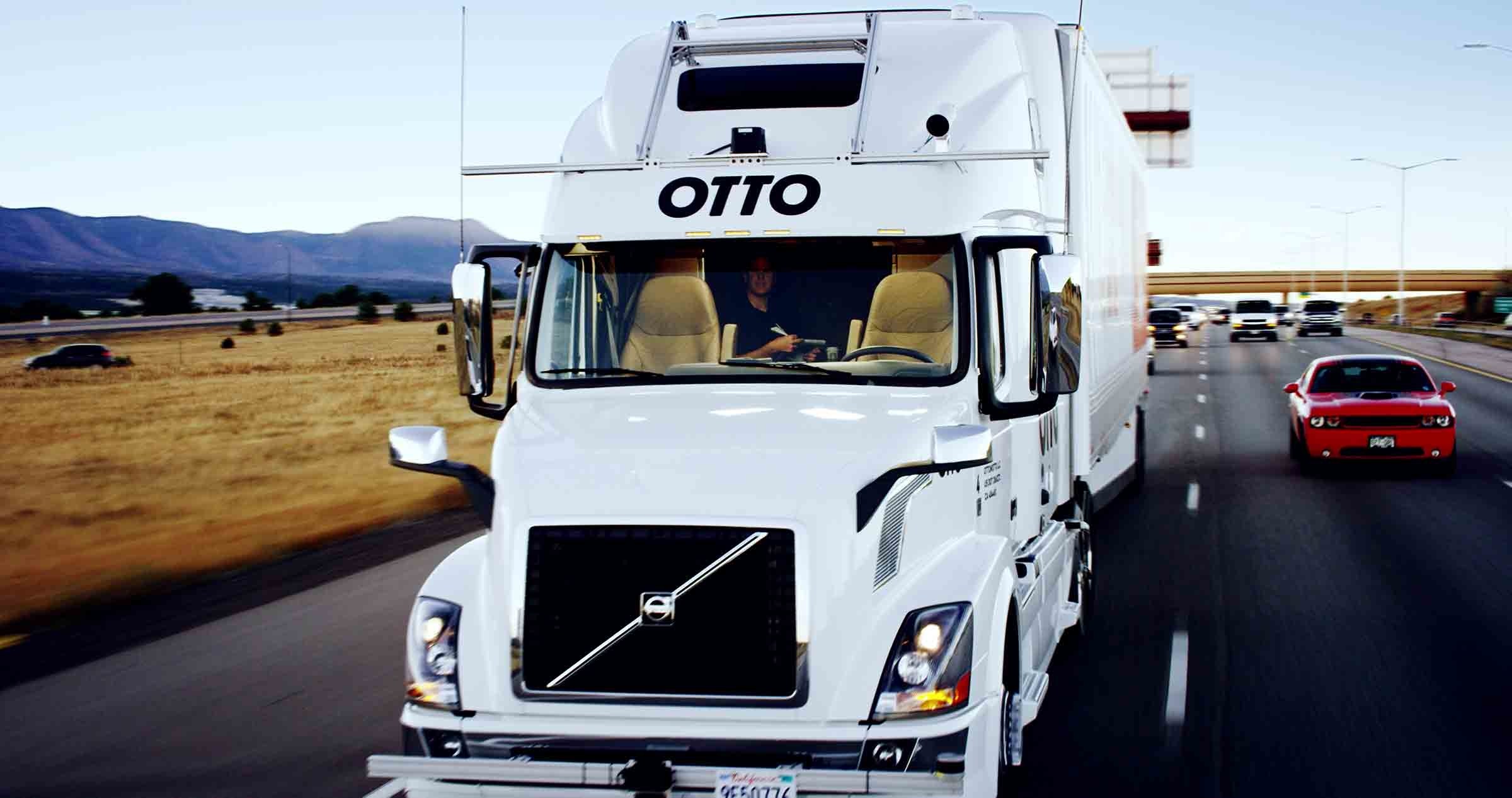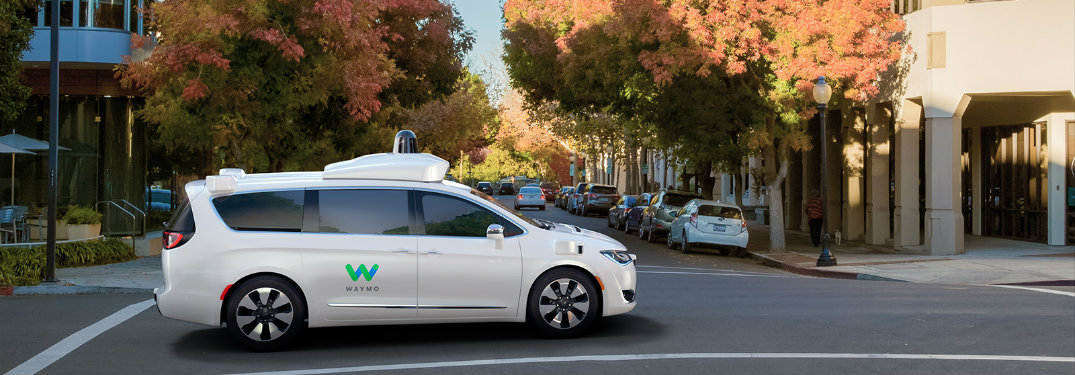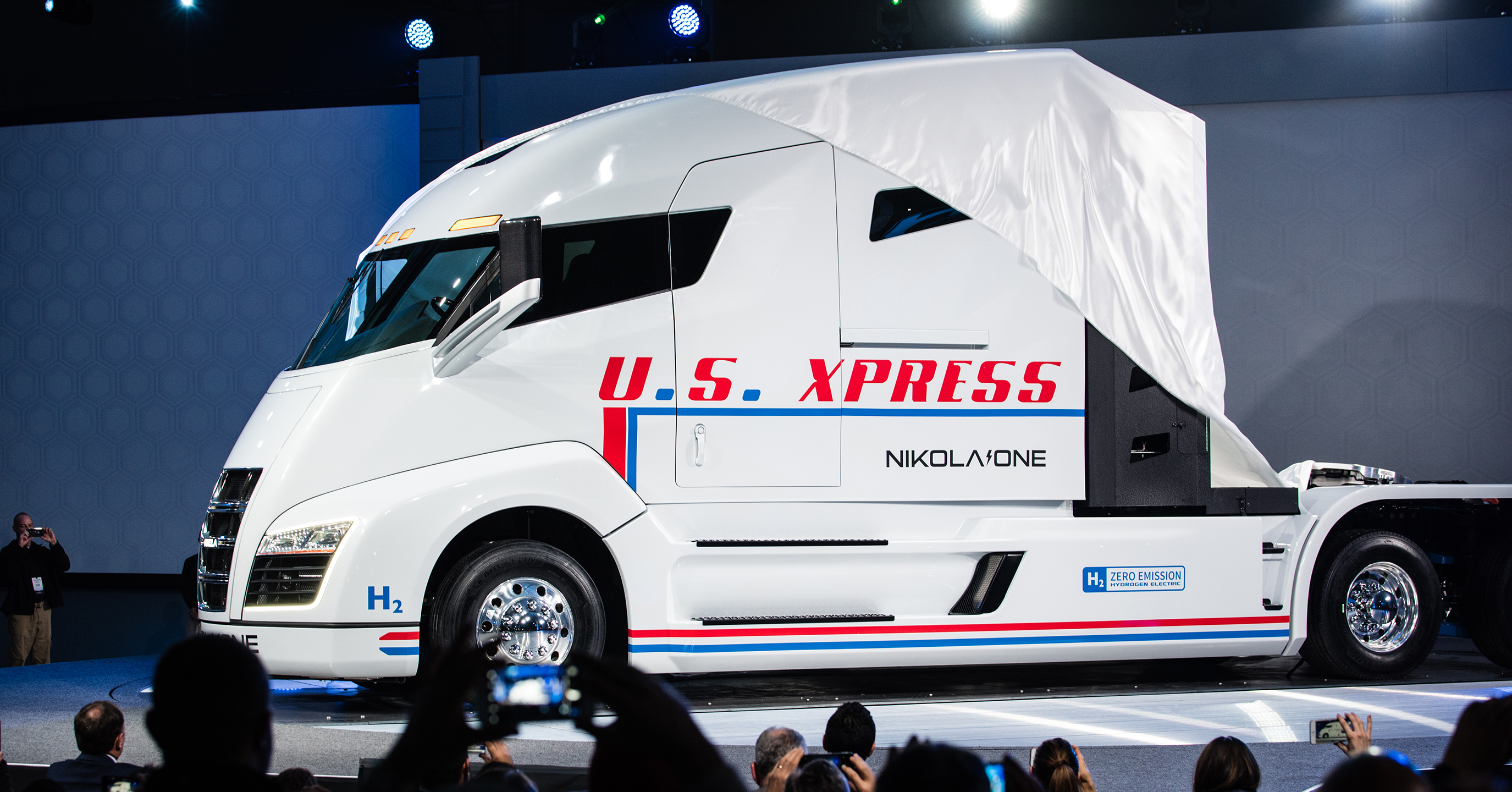Competition for the future market: who is developing autonomous trucks today

Autonomous cars - a trend that has recently been supported by leading IT and auto companies. However, if you can make an ordinary car drive without a driver, then the same can be done with trucks.
The main obstacle for the development of autonomous trucks remains legislative restrictions. Therefore, the most promising is the use of machines in closed areas. Although in May 2015, Daimler was the first in the world to obtain permission from the state of Nevada to use its autonomous truck in its territory. Outside the state, however, the driver must shift to manual control.
Daimler is going to launch its development on the market in 2020. Until this happens, we offer to recall the main competitors of the company in this industry.
Uber

The development from Uber is called Otto. This truck is designed primarily to help drivers, switching to autopilot if the trucker is tired. The developed system will save fuel, without accelerating and braking, as people do - Otto will keep the speed stable, which will reduce consumption.
The concept is also aimed at solving environmental problems; moreover, the autopilot assistant does not provoke massive dismissals of drivers.
However, the fate of Otto is still unknown: the company officially launched a startup Otto in August 2016, but now the project is at the center of a lawsuit , where the competitor is Google's rival company, Waymo. However, on the official YouTube channel, a video with the presentation of an autonomous truck has been available since May last year.
Waymo
Despite litigation with Uber, a subsidiary of Google Waymo is currently the leader in the field of unmanned vehicles . At the moment she has a flagship Chrysler Pacifica - autonomous minivan, which is already carrying passengers.
Now Waymo wants to transfer this technology to trucks. Their trials will begin later this year in Arizona.

Unlike Uber and Otto, who want to minimize the amount of harmful emissions, the creators of Waymo aim to reduce the number of deaths and increase safety on the roads.
Volvo

Volvo plans to release autopilot trucks for private use and to help the driver, not to replace it.
Last September, Volvo tested an autonomous truck at a mine in northern Sweden. A fully autonomous dump truck operating at a depth of about 1 km, drove 1,320 meters (a little less than one mile) under the ground. Working in cramped underground conditions has a great effect on driver fatigue, as a result, productivity is very unstable. The refusal of the driver has significantly increased productivity, safety has also increased. The project was aimed at improving traffic flow and mine safety.

In June of this year, Volvo autonomous developments were tested in Brazil. The self-guided truck was moving alongside the combine that collected the sugarcane, and the driver only controlled the process. The program coordinated the speed of the machine with the combine and helped the machine withstand the necessary lateral spacing. As a result, loss of 4% yield was avoided.
But Volvo also wants to use autopilot technology in urban environments: the company is now testing autonomous garbage trucks in Sweden. A representative of the company will talk more about Volvo’s developments in unmanned trucks at the Connected Car Summit .
Peloton

Peloton is developing technology to help drivers, which will allow trucks to follow each other along the highway, while maintaining a safe distance.
The truck will automatically alert the driver if there is another Peloton truck nearby. Both drivers can “connect” by pressing a button, and then one truck will autonomously follow the other. Accordingly, if the lead truck stops, the second one will brake automatically.
The creators claim that their development has saved 7% of fuel. Omnitracs, which provides software for American fleets, officially collaborates with Peloton to release technology for the mainstream market.
Starsky robotics
California startup Starsky Robotics is developing an autonomous truck capable of transporting cargo over a distance of 200 kilometers.
Starsky will, rather, not self-governing, but “radio-controlled”: the truck will be driven by a specially trained driver using the remote control. Thus, Starsky Robotics engineers will allow drivers to work closer to home and not leave on business trips.
Nikola Motor Company

Nikola Motor Company wants to create autonomous hydrogen powered trucks.
Cars with a hydrogen engine reduce fuel reuse time. However, there are very few hydrogen stations in the US to support such vehicles.
Nikola One intends to turn hydrogen vehicles into reality by building 364 hydrogen stations throughout the United States. The company plans to build a hydrogen infrastructure by 2019 and sell its hydrogen truck, Nicola One, by 2020.
All Articles